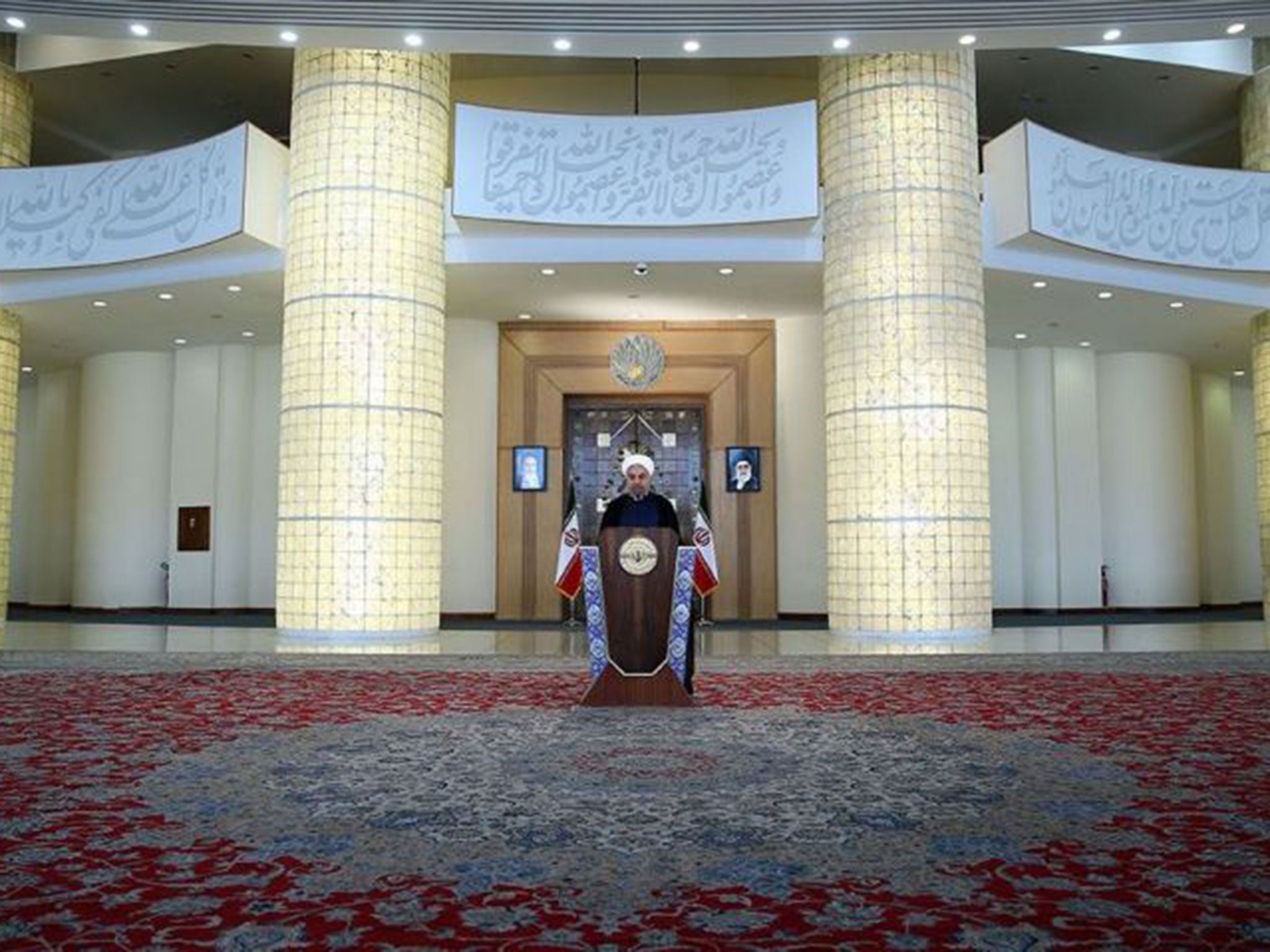Iran executions: 'Unprecedented spike' in the number of Iranians put to death sees Tehran face renewed calls to address human rights abuses
Its politicians have established a rapport with their American counterparts in the recent nuclear negotiations, but this is still a country that seems to see the hangman as a panacea

The Islamic Republic of Iran, like its nuclear ally America, is fighting and failing in its own “war on drugs”. And its hangmen have never been busier.
Amid an “unprecedented spike” in the number of Iranians put to death, Tehran faces renewed calls to address human rights abuses as the West lifts sanctions in return for a commitment not to build a nuclear bomb.
Second only to China as the nation that kills the most of its citizens, Iran is said to have executed almost 700 people so far this year almost three times the figure acknowledged by the authorities.
That equates to around three prisoners a day. Rights groups predict Iran will execute more than 1,000 prisoners by the end of this year. Thousands more wait on death row in what campaigners have called a “theatre of cruelty”.
According to Amnesty International, death row prisoners are disproportionately the poorest in society, as they often are in America. They are from provinces bordering Afghanistan, and the rich often escape the punitive judiciary system. “Iran’s staggering execution toll for the first half of this year paints a sinister picture of the machinery of state carrying out premeditated, judicially sanctioned killings on a mass scale,” said Said Boumedouha, deputy director of Amnesty’s Middle East programme.
“They are imposed either for vaguely worded or overly broad offences, or acts that should not be criminalised at all, let alone attract the death penalty,” Amnesty said. “Trials in Iran are deeply flawed, detainees are often denied access to lawyers, and there are inadequate procedures for appeal, pardon and commutation.”
Yet Mohammad Javad Zarif, the Iranian Foreign Minister who built a warm rapport with US Secretary of State John Kerry during protracted nuclear negotiations, has said he is “proud” of Iran’s judicial system.
Raha Bahreini, an Iran researcher with Amnesty, said: “In the light of these figures on executions, we would urge international leaders to use the opportunity of opening relations with Iran to raise concerns about human rights obligations.”
Rights groups said nine prisoners charged with murder were executed at Rajai Shahr Prison, west of Tehran, on Wednesday. Some 14 more prisoners were transferred to solitary confinement, awaiting death.
The influx of opium from Afghanistan and increasing use of “shishee” (crystal methamphetamine) has seen drug addiction increase dramatically in Iran. President Hassan Rouhani has pledged to eradicate Iran’s drug problem. Possession or transport of drugs, “even in relatively small amounts” of less than 500g, frequently leads to execution, say campaigners.
Also executed in Shia Iran are religious and ethnic minorities convicted of “enmity against God” and “corruption on earth”. They include Kurdish political prisoners and Sunni Muslims. Hamed Ahmadi was executed in March at Rajai Shahr Prison. With five other men – Jahangir Dehghani, Jamshid Dehghani, Kamal Molaee, Hadi Hosseini and Sediq Mohammadi – he had been sentenced to death in 2012. He and the other men had committed an “enmity against God”. They were Sunnis.
“Every day we thought we would be executed the next day but no one came for us,” he wrote from Rajai Shahr Prison shortly before he was hanged. “We approached death 45 times. We said goodbye to life 45 times. Again the nightmare of death. Again the repetition of the image of a man dangling from a noose in our head.
“Execution followed me and my family every second. My family was executed with me over and over. If they had not received news from me for one day, they would come to the prison immediately thinking that we are finished.”
Ms Bahreini. said: “Civil and political rights and freedoms were part of President Rouhani’s election pledge, but they haven’t received serious attention yet. This is not about Islam. Drug-related issues are not even part of Sharia law. This is about a state that sees the death penalty as a solution to its social ills.”
In a letter circulated online in June, 54 prisoners held on death row in Ghezel Hesar Prison, near Tehran, said: “We are the victims of a state of hunger, poverty and misery. If we had jobs, if we did not need help, if we could turn our lives around and stop our children from going hungry, why should we have gone down a path that guaranteed us our death?”
Join our commenting forum
Join thought-provoking conversations, follow other Independent readers and see their replies
Comments